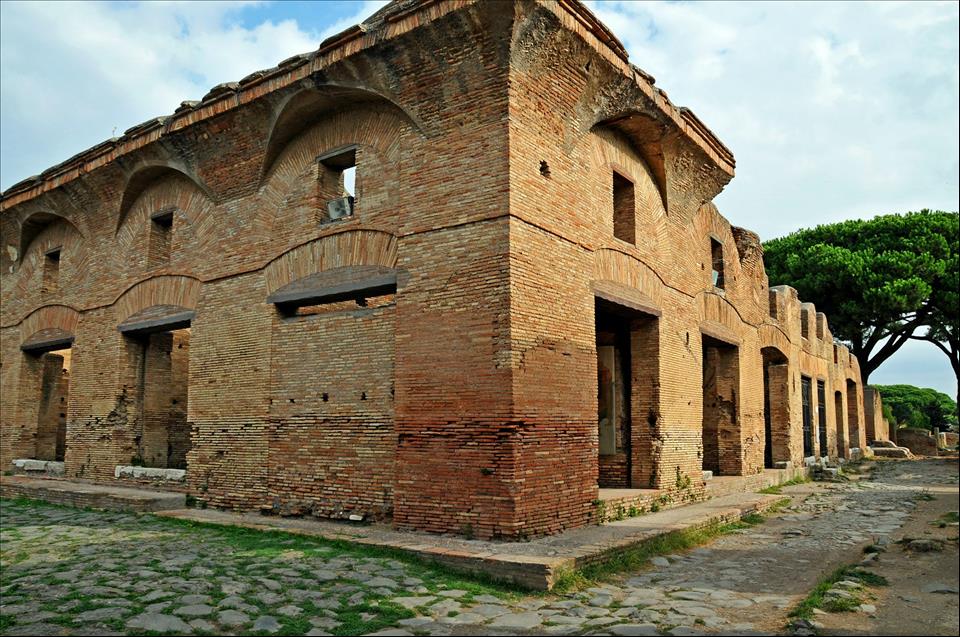
The Ancient Greeks And Romans Grappled With Housing Crises, Too
This is one of the great issues of our time. But is it a specifically modern problem? Like today, people in ancient times dreamed of having property. The purchase of a house was a source of joy.
But they also had to deal with some strikingly similar difficulties at different points in time over various centuries.
A housing crisis is nothing newIn 164 BCE, King Ptolemy of Egypt went into exile and fled to Italy. Disguised as a commoner and accompanied by three slaves, he went to Rome. There, Ptolemy sought out his friend, Demetrius.
When he found him, he was shocked. This friend, who was fairly wealthy in Egypt, was living in poor conditions.
One of the reasons for this, as we are told by the Greek historian Diodorus Siculus (c. 80–20 BCE), was that rental properties in Rome had become so expensive:
Even though Demetrius was well-off, Rome was so costly, he couldn't find a decent, affordable rental property.
Housing crises had serious social consequencesIn the 130s BCE, Rome was in a dire situation. Owing to the greed of wealthy landowners, poorer people were increasingly unable to afford rents or purchase property.
As the Greek writer Plutarch (c. 46–119 CE) tells us:
To try to resolve this problem, Roman politicians decided to create a law“forbidding the holding by one person of more than five hundred acres of land”.
However, this law did not succeed. The wealthy found ways to evade it by getting middle men to buy property for them.
This failure had serious social consequences. As Plutarch explains :
As people could no longer afford to live in their own country, many felt they had no stake in the future any more. They lost their desire to fight for the country, or raise future generations.
Attempts to fix the problemOver the centuries, ancient rulers also attempted to tackle housing unaffordability in different ways.
One proposal was for the state to offer land for free, on which applicants could apply to build homes.
As the Athenian writer Xenophon (c. 430–350 BCE) noted :
What if there was no vacant land available for people without access to housing? Servius Tullius , king of Rome in the 6th century BCE, offers an example of another possible (and perhaps familiar sounding) solution – urban sprawl.
According to the historian Dionysius of Halicarnassus (writing in the 1st century BCE), Servius expanded the size of the city and made new land free to build on.
This would house Romans who“had no homes of their own”. This solution seems to have worked and expanded the size of the city greatly.
The homes of many wealthy Romans were remarkably opulent. Wikimedia Location, location
People in ancient times also understood that location was everything. They knew that if they moved from a big city to a rural area, property would be more affordable.
For example, the Roman poet Juvenal (c. 55–127 CE) observed that for the same amount you'd pay in yearly rent in Rome:
Of course, the difficulty was finding an income far from the city. For most people, that was not possible.
Refinancing and debtIf people had no money but had property without a current mortgage, they could refinance their property to get a loan. As one anonymous ancient commentator wrote about the custom of the Athenians:
The long-lived comic poet Alexis (c. 375–275 BCE), joked about this practice. A character in his play The Greek Girl quips about having“to mortgage all our property” to buy expensive fish for dinner.
Lessons from the pastThe Roman politician Tiberius Gracchus (c. 169–133 BCE) offered a powerful piece of rhetoric about the housing crisis of his time. Referring to displaced citizens, he said that:
Today, we might live in a very different world, but looking to history shows us access to housing and social cohesion have long been closely linked.

Legal Disclaimer:
MENAFN provides the
information “as is” without warranty of any kind. We do not accept
any responsibility or liability for the accuracy, content, images,
videos, licenses, completeness, legality, or reliability of the information
contained in this article. If you have any complaints or copyright
issues related to this article, kindly contact the provider above.


















Comments
No comment